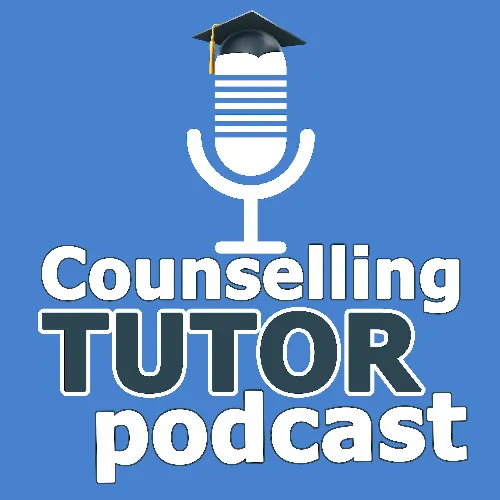044 – Getting into the Client’s Frame of Reference – Existential Counselling – Does the Seventh Stage of Process Exist?
- Author
- Ken Kelly and Rory Lees-Oakes
- Published
- Sat 20 May 2017
- Episode Link
- https://counsellingtutor.com/044-getting-into-the-clients-frame-of-reference-existential-counselling/
In episode 44 of the Counselling Tutor Podcast, Rory Lees-Oakes and Ken Kelly offer tips on how to get into the client's frame of reference. 'Theory with Rory' looks at existential counselling, as developed by Rollo May and Viktor Frankl. Finally, the presenters discuss the seven stages of process.
In addition, Ken describes his new book - now available in hard copy - Basic Counselling Skills: A Student Guide.
Getting into the Client's Frame of Reference (starts at 4.54 mins)
Are there any questions or skills we can use to help get into the client's frame of reference faster?
Ken's view is that questions are not especially useful unless used to clarify our understanding of what the client is bringing. Skills that are particularly valuable in entering the client's frame of reference are:
Attending: Rory describes how listening attentively and non-judgementally often helps clients to resolve their own issues. So many people in daily life instead provide advice or dismissal: it is really refreshing and novel for a client to experience counselling-type listening.
Silence: although this can be uncomfortable for new therapists, it is a very valuable (yet often underrated) skill in allowing clients the space to process their feelings, and in avoiding reverting to our own frame of reference.
Empathy: as this core condition (which is not so much a skill as a personal quality or way of being) is all about trying to see the client's world as they do (putting ourselves in their shoes, though remembering to 'keep our socks on'), this is key to getting into the client's frame of reference.
Reflection: although this may seem a very simple skill, reflecting back what the client is bringing provides the ideal opportunity for them to confirm or refute our understanding.
Rory and Ken provide the following tips:
Remember that it takes practice - and reflection on your own development - to learn how to get into and stay in your client's frame of reference.
Make the most of supervision and dialogue with other therapists to help you develop your ability.
Use your personal-development group at college to practise really listening to your peers, getting into their frames of reference.
Read biographies as a way of 'listening' to another person describe their world; while doing so, reflect on your own feelings and reactions to the material.
Existential Counselling (starts at 16.17 mins)
Existential therapists believe that the world and human life have no meaning unless we as humans give one - that is, it is up to us to find the meaning in our own lives. Thus, this modality aims to help us draw meaning from our own experiences, and to make sense of a world that can feel random, unpredictable, cruel and unfair.
The modality links to other forms of therapy, particularly the person-centred approach, as Carl Rogers read a lot of work by the Danish philosopher Søren Kierkegaard, who is considered the grandfather of existential philosophy.
Key contributors to existential therapy are:
Viktor Frankl, an Austrian neurologist and psychiatrist who wrote Man's Search for Meaning, about his experiences in a concentration camp, noticing that those who were motivated by a meaning to life survived longer than those who lacked purpose. Frankl developed logotherapy.
Rollo May, a US psychologist, wrote about the struggle between security and dependence,
